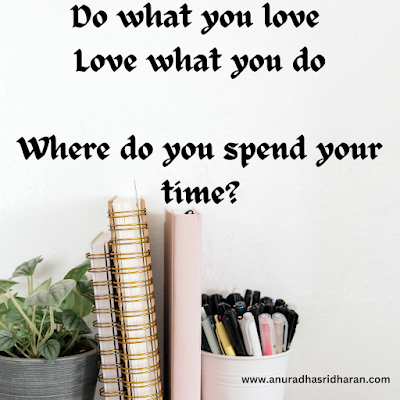No doubt, the taste and flavor of traditional grinding far exceeds that of a machine-ground chutney. And yes, traditional hand grinding is a good exercise for the arms and shoulders. But the time-saving and convenience of the mixer-grinder outweighs these benefits.
Luxury once sampled becomes a necessity.
Last night, I was narrating the experience of how TV evolved in the 80s and 90s - from black&white to colour, Doordarshan days, changing channels by pressing buttons on the TV, no way to skip intro/skip ad, no way to rewind or forward, no way to rewatch an episode, no way to pick and choose a movie to watch and much more. She was taken aback by all the "privileges" the 80s and 90s kids didn't have from a TV point of view.
Will we choose to go back to a single channel with fixed timings for programmes and movies like it used to be earlier? Very few might even consider that option.
Luxury once sampled becomes a necessity.
WFH (Work-from-home) was one such luxury and benefit we claimed from our employers in the 2000s when we were not so unwell, when we had guests at home or when we expected a furniture delivery in the middle of the day. Then came the lockdown and pandemic. WFH became the norm, work got done amidst the uncertain environment.
We realized how much time was saved by avoiding commute.
We also experienced more focus and attention when we were in the comfort of our home office/desk/ergonomic chair, rather than working in an open-office setup, next to colleagues taking Zoom calls with clients/team-mates from other countries/cities.
We felt relaxed to take a short break and make ourselves a cup of homemade milk chai or coffee.
We brought to the forefront our capacity to multitask and manage the mental load and responsibilities of various roles (employee, daughter, mother, father, son, etc).
We also noticed how the moment we stepped out of our work desk at home, we can be available to listen to the little chitchats of our kids rather than battle traffic and potholes to reach our homes late into the night.
Luxury once sampled has now become a necessity, especially for knowledge workers who have realized how a laptop and a stable Internet connection is all that matters to get work done.
It is an irony that the same tech founders and leaders who wish to improve quality of lives through technology are forcing employees to get back to office location.
"We deliver chips and aerated drinks in 7 minutes, but we want you to write the code/manage the product that provides this convenience by battling traffic woes for 2 hours everyday and be in our office location so we can be sure that you are working".
Productivity improves with Trust (& vice-versa).




















